Are you in need of legal representation but unsure how to approach the situation? Crafting a clear and concise letter can make all the difference in conveying your needs to potential lawyers. In this article, we'll guide you through the key elements of an effective request for legal assistance, ensuring you present your case with clarity and confidence. Ready to take the next step in securing the support you need? Let's dive in!
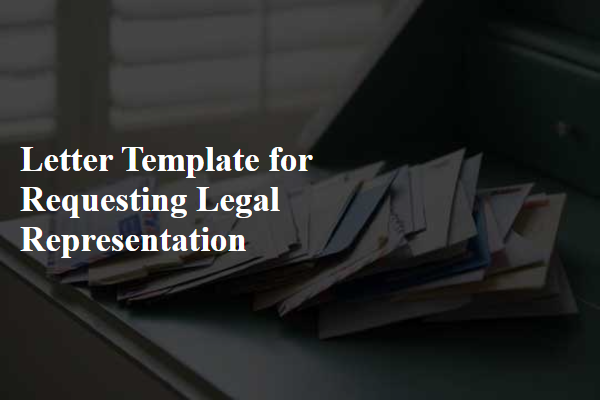
Clear Identification of Parties
In legal matters, clear identification of parties is essential for ensuring proper representation and understanding of legal responsibilities. The plaintiff (individual or entity initiating a lawsuit) must be distinctly named, such as John Doe, residing in New York City, while the defendant (individual or entity being accused) should be identified as Jane Smith, whose business is located in Los Angeles. Additionally, the inclusion of relevant business titles, addresses, and contact information strengthens the clarity of the document. This precision aids legal representatives in advocating effectively in the context of civil lawsuits, contract disputes, or criminal defense scenarios. Accurate identification eliminates confusion and fosters a transparent legal process.
Specific Legal Issue or Case Description
Individuals facing legal challenges, such as personal injury cases from car accidents, often require expert assistance to navigate complex legal systems. Detailed accounts of the incident, including the date (for example, January 15, 2023), location (such as Main Street in Springfield), and the extent of injuries sustained are crucial for establishing a compelling case. Additionally, gathering police reports and medical records can provide essential evidence to support claims. Enlisting the help of experienced attorneys specializing in personal injury law can significantly influence the outcome, ensuring fair compensation for medical expenses, lost wages, and pain and suffering. Prompt action is essential, as statutes of limitations may apply, limiting the time available for filing a legal claim.
Desired Legal Outcomes or Objectives
When seeking legal representation, the desired legal outcomes often revolve around achieving specific objectives tailored to individual circumstances. For example, in cases of personal injury, individuals may aim for monetary compensation that fully covers medical expenses, lost wages, and pain and suffering, reflecting a total amount often calculated in relation to the severity of injuries and duration of recovery. In family law, objectives could include securing custody rights or achieving equitable asset division during divorce proceedings, with goals defined by state laws and individual family dynamics. Business disputes may prioritize contract enforcement or damages compensation, where outcomes are influenced by contractual terms and compliance with commercial regulations. In criminal defense, objectives typically include reduced charges, or dismissal of cases based on evidence and procedural mistakes. Each scenario demands a strategic legal approach, necessitating the expertise of a qualified attorney to navigate complexities of law effectively.
Contact Information for Follow-Up
When seeking legal representation, providing clear and concise contact information is crucial for effective follow-up communication. Essential elements include full name, residential address, phone number, and email address. Include the preferred contact method, whether direct phone calls or emails, specifying availability times. Additionally, consider including relevant case information, such as the nature of the legal issue, current status of proceedings, and any deadlines that may be approaching, to facilitate prompt and informed responses from potential legal representatives. Accurate and detailed contact information ensures that attorneys can reach out efficiently, enabling a timely discussion of your legal needs.
Timeline for Response and Engagement
A request for legal representation often requires a clear outline of the timeline for response and engagement. Legal services, especially in cases involving civil litigation or criminal defense, necessitate prompt communication due to the nature of legal proceedings. Typically, an initial consultation might occur within 7 to 14 days of the request, allowing the attorney to assess the case's merits and complexities. Following this, a formal engagement letter may be expected, outlining fees and a retainer agreement within 5 business days. Crucial deadlines, such as court filings or discovery requests, may dictate expedited timelines, necessitating responses and engagement within 24 to 72 hours. Establishing a timeline ensures that all parties understand their responsibilities and timelines, laying the groundwork for effective legal representation.
Letter Template For Requesting Legal Representation Samples
Letter template of request for legal representation for personal injury case
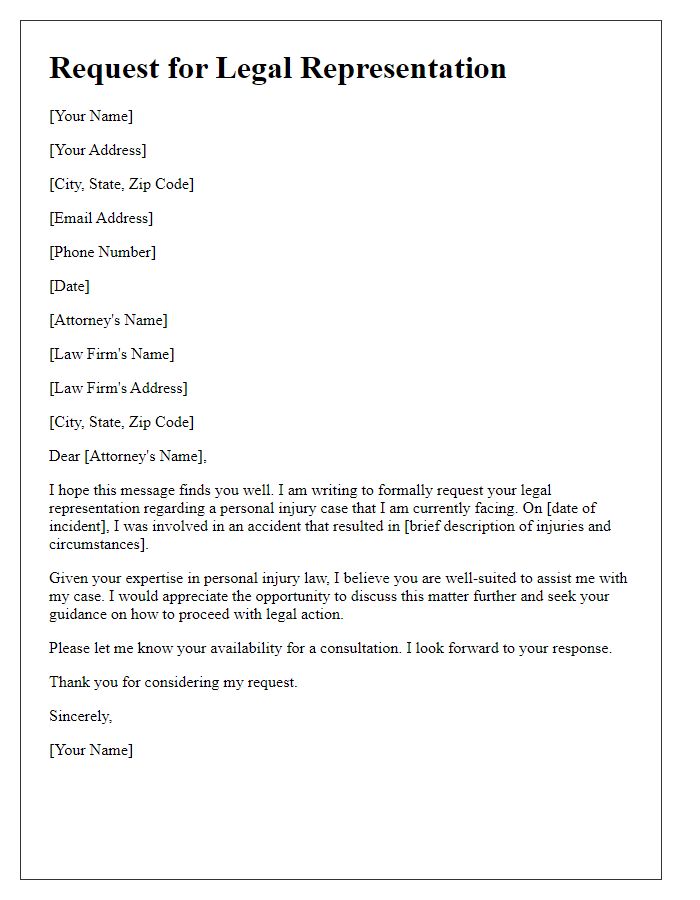
Letter template of request for legal representation in family law matter
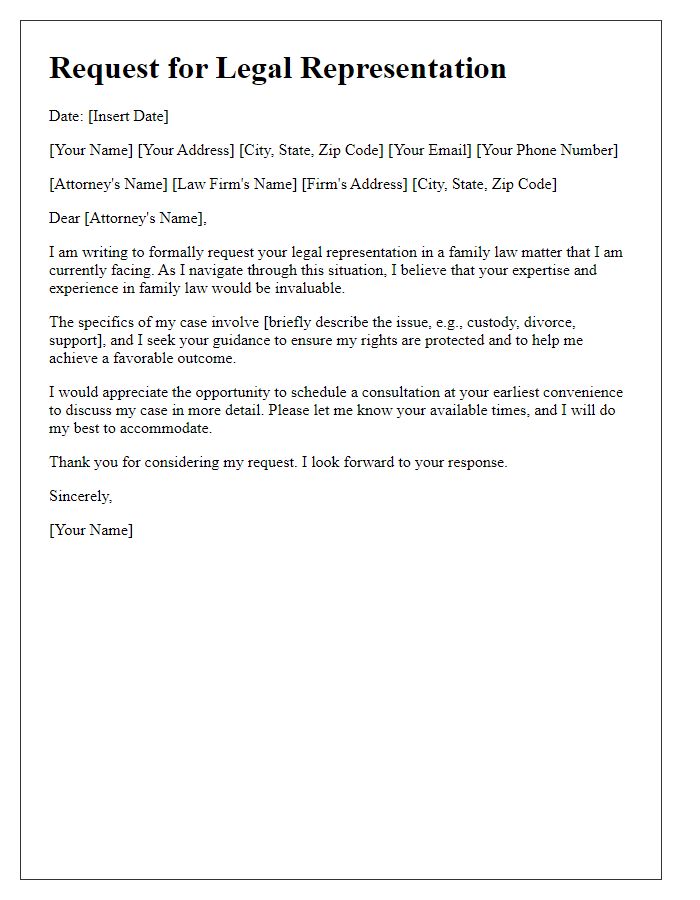
Letter template of request for legal representation for criminal defense
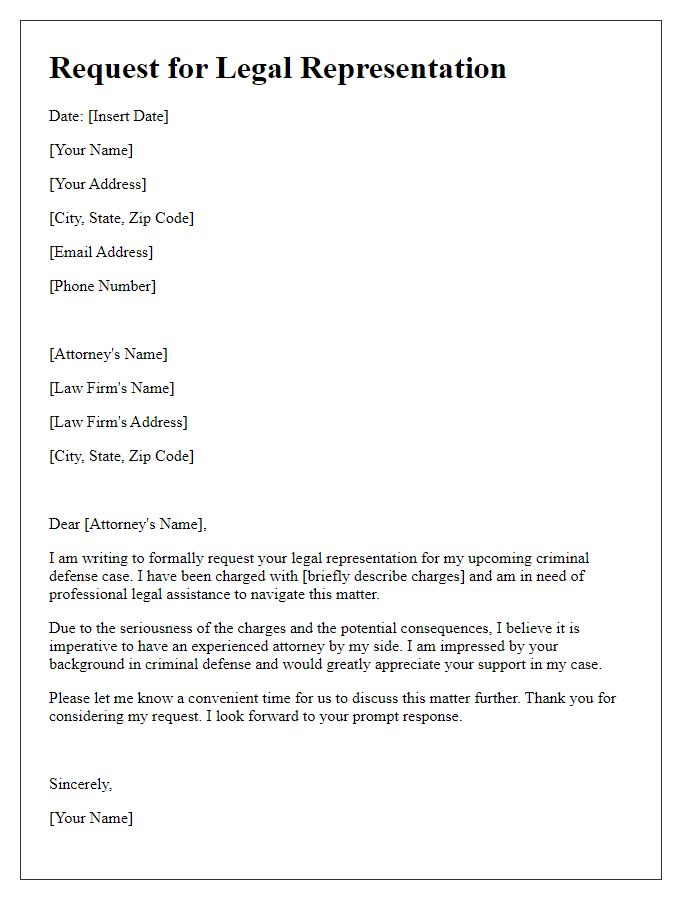
Letter template of request for legal representation regarding a business dispute
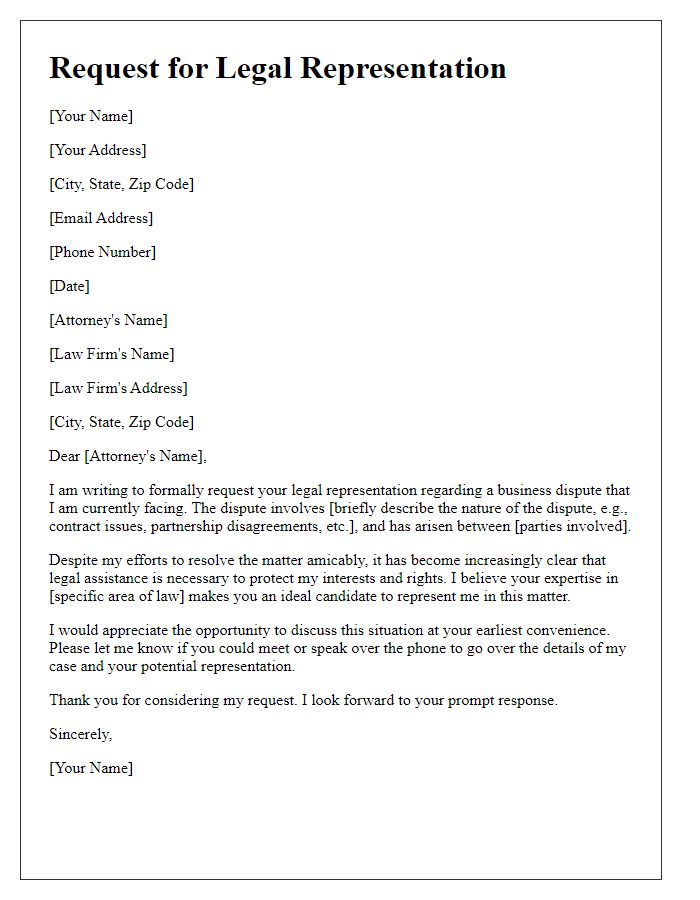
Letter template of request for legal representation in immigration issues
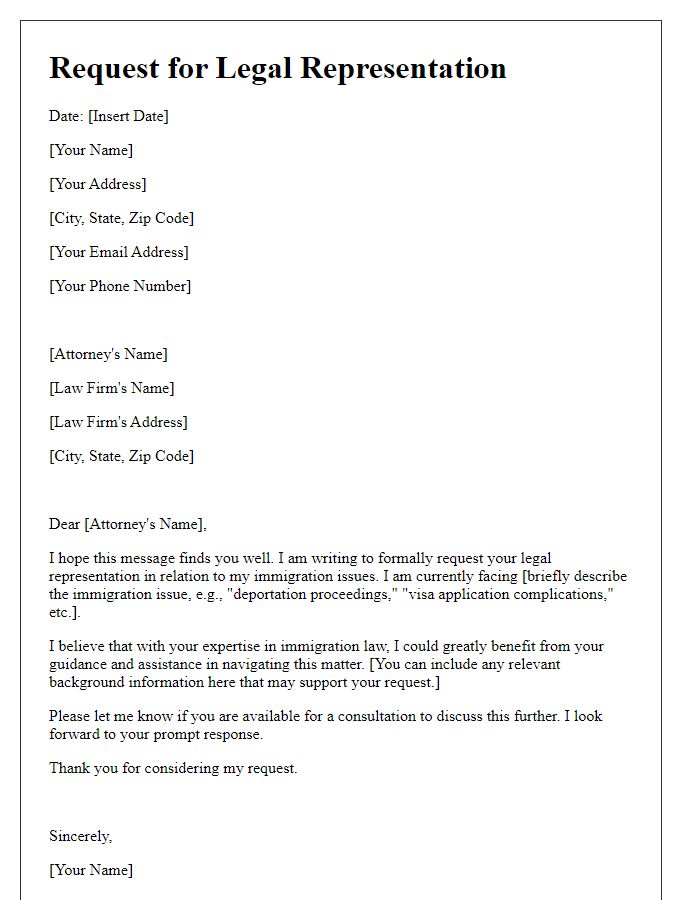
Letter template of request for legal representation in real estate transactions
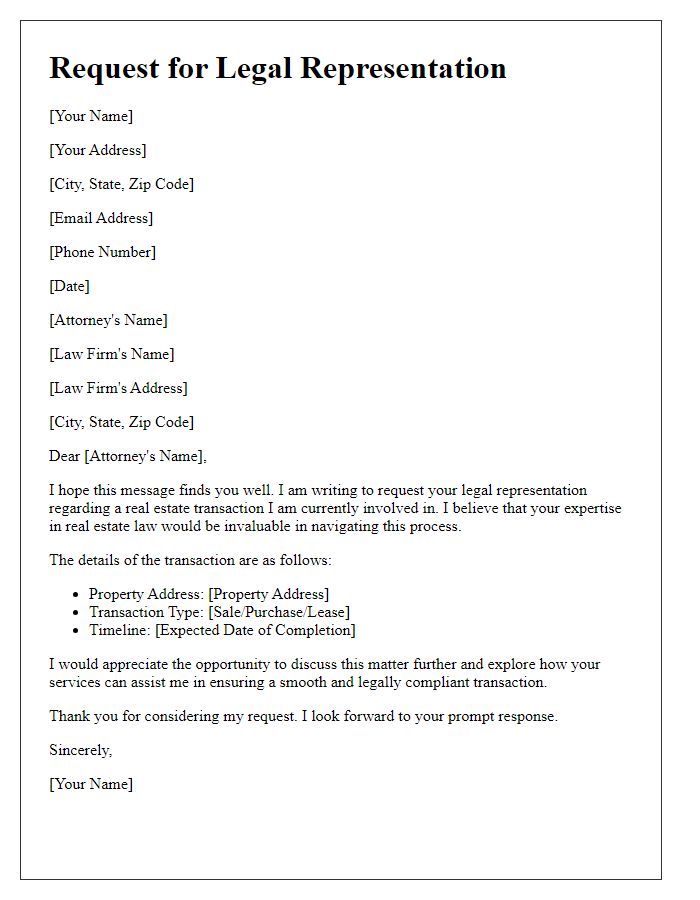
Letter template of request for legal representation in consumer protection cases
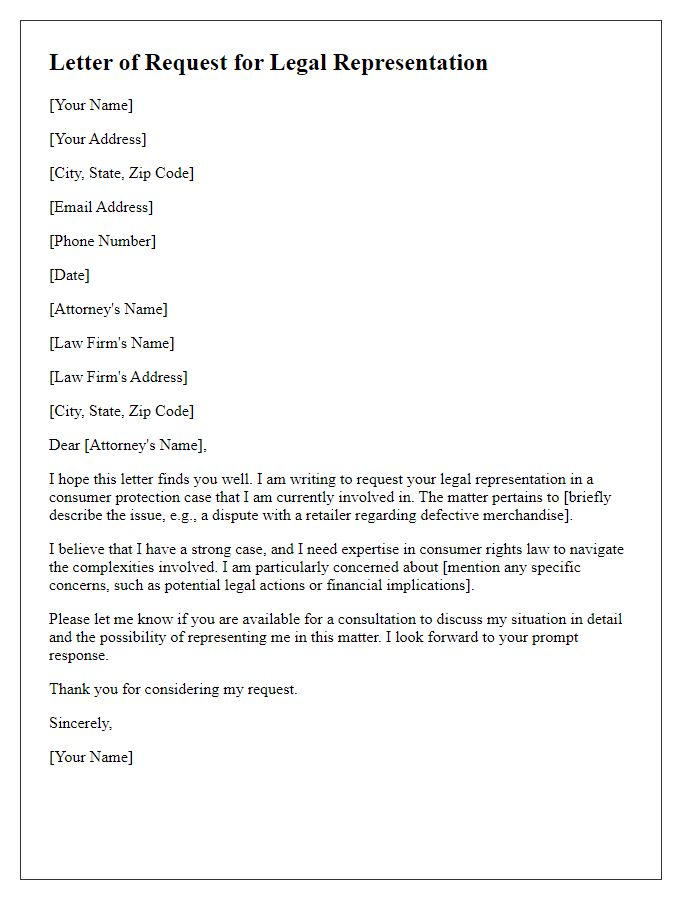

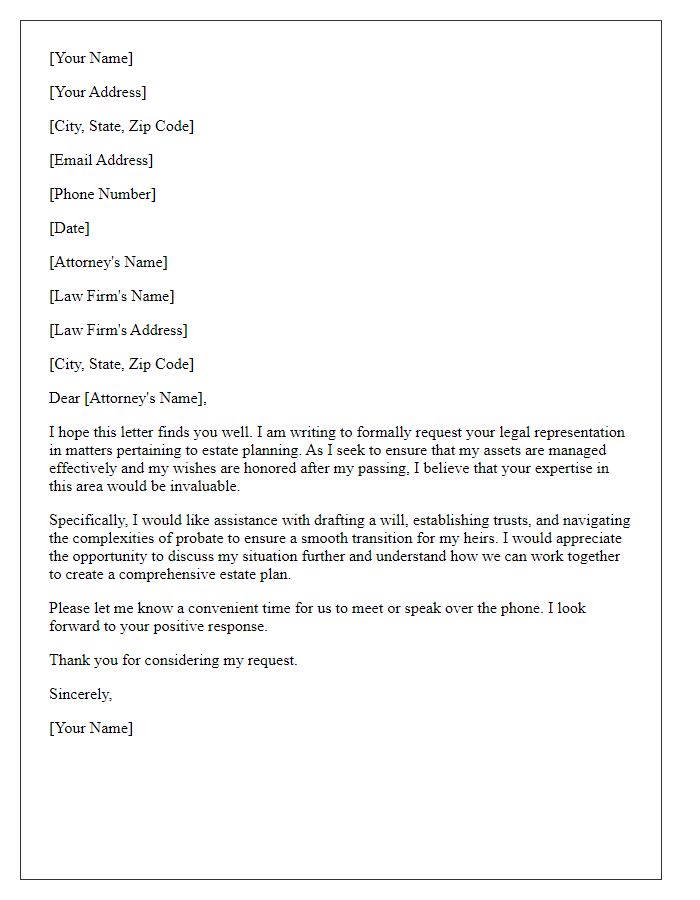
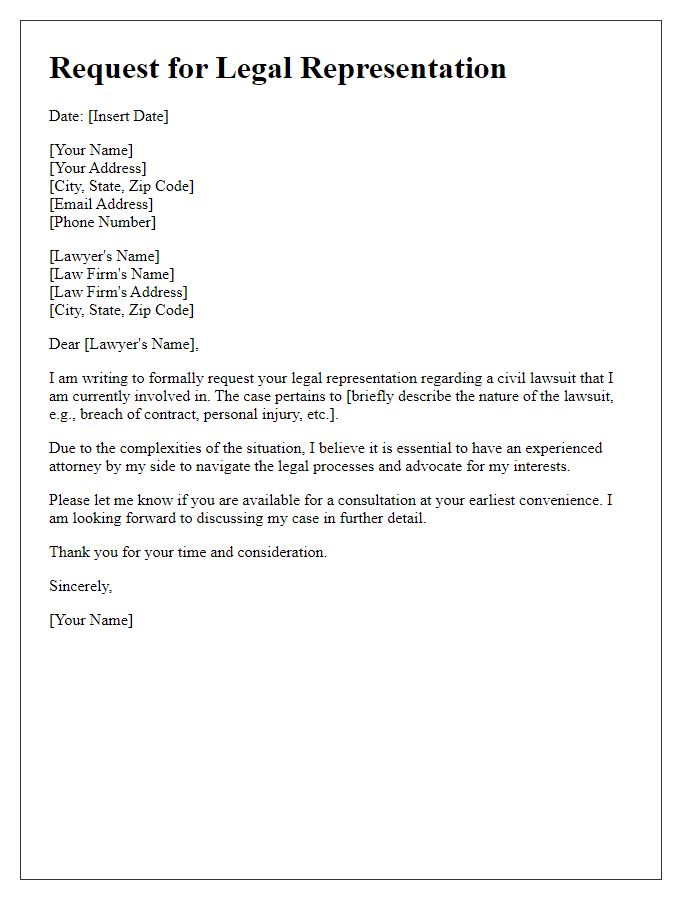
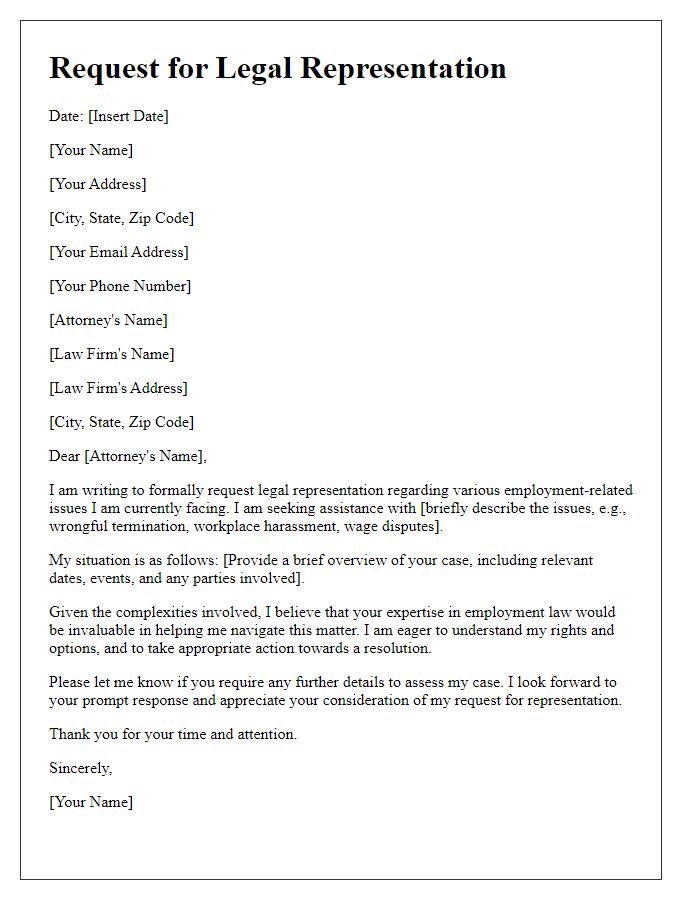

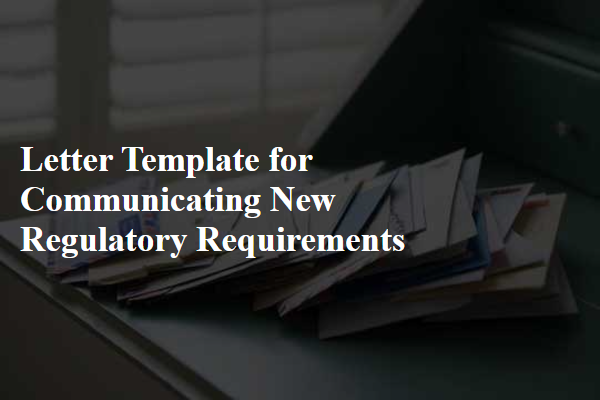
Comments